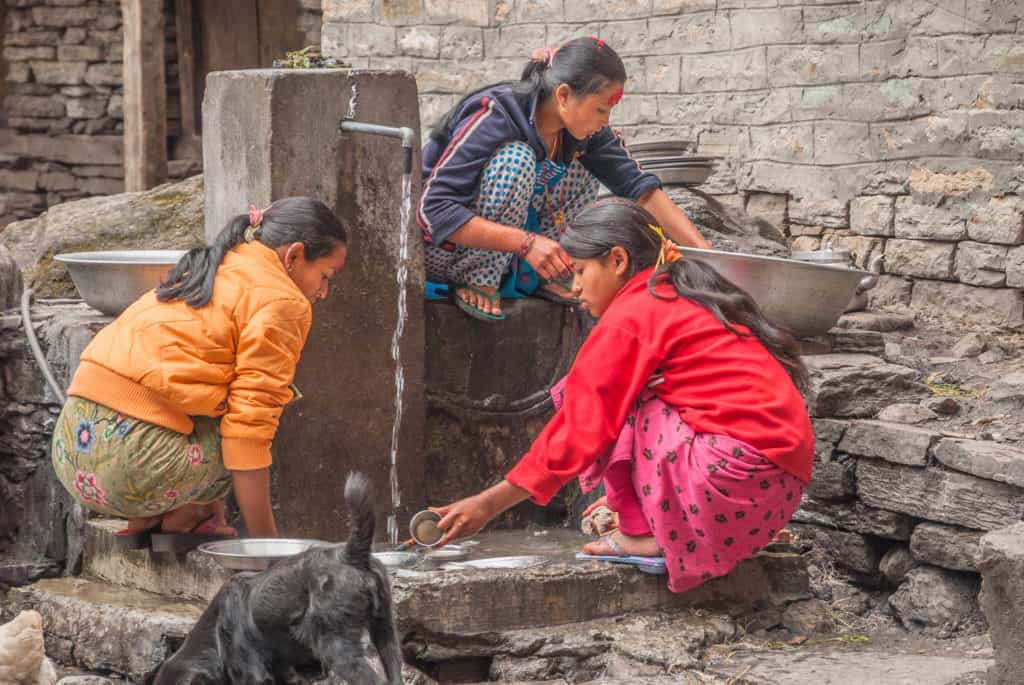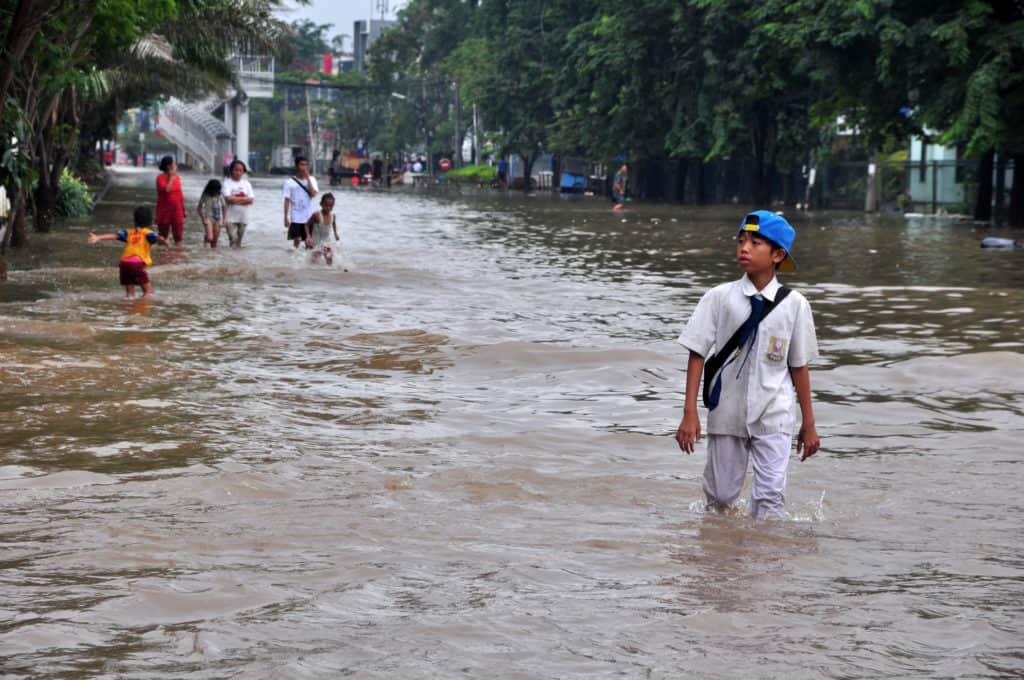Overcoming water supply risk data gaps with citizen science in Nepal

Data gaps hamper the assessment of household level water risks related to intermittent and poor quality water supplies. Without such an assessment, government agencies lack incentives to improve services and to be able to channel scarce human and financial resources effectively to reduce water-related risks. Mobile connectivity creates an opportunity for citizens to be directly […]
Assessing water risk in mega-cities

This study analyses water risks in the Greater Jakarta mega-city region through a collaborative research methodology. The Jakarta region faces high water-related risks from multiple sources: low access to piped water and sanitation, riverine, surface and coastal flooding, land subsidence and groundwater depletion. The area also provides an illustrative case of multi-level and multi-party governance […]
Building community resilience to climate risks

The resilience of a community – its ability to respond and recover from setbacks and disasters – is influenced by its inherent characteristics that allow the system to absorb impacts and cope with an event, and by the presence of adaptive processes after the event which facilitate the ability of the social system to re-organise, […]
